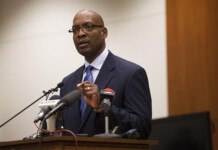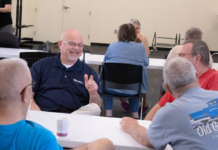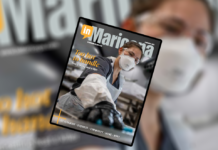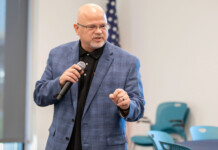
inmaricopa.com runs, on a regular basis, opinion pieces submitted by community members. The following article is the opinion of the author, and does not necessarily reflect the views of inmaricopa.com.
If Maricopa is going to evolve into an economically self-sustainable locality, and something other than the “bedroom community” it presents itself today, then it will be necessary for the City to make calculated investments. Yes, I’m fiscally conservative, but I certainly wouldn’t want to be viewed as “Dr. No” when it comes to all aspects of how the taxpayer’s money is spent. Fact is, without calculated investments of Maricopa in herself, the progress we need towards economic independence might not be made.
Maricopa can’t wait around hoping, that with a turnaround in the market, everything will fix itself. That would be like sitting at home, and suddenly a winning lottery ticket fell in your lap. In investing in herself, Maricopa would be planting the seeds now that would hopefully, through careful planning, produce a wonderful economic crop later. It must be viewed as opportunity cost for the taxpayer. However, that cost must be transparent, properly managed and openly explained to the members of the community. Without the understanding on why a decision is made, the public is left to formulate their idea of its purpose. The result of that is a lack of understanding, which can result in a breakdown in trust between local government and the community it serves. We must remember that public perception is a powerful force, and that perceptions don’t necessarily require fact.
A majority of the city’s working population commutes out of the city for work each day. I envision a future for Maricopa when residents can live, work and shop right here. This vision may take some time to come to fruition, but, if we don’t begin now, who would we have to blame, when in several years, we’re in the same situation we are today?
I fought against Question 5 not because of a belief that all bonds, when properly managed, are bad, but because I felt the “Yes on 5” political action committee had not done a very good job explaining the real cost of the secondary property tax to the residential and commercial property owner. Without voters fully understanding the pro’s and con’s on any issue, how can we expect them to make an educated decision on what’s best for their family? Let the voter be the decider, through a well-informed decision. When I worked the polls on Election Day, many voters had voted yes on Question 5 and didn’t even know what it was! In one of my published articles, I made reference to the idea of “Kitchen Table Economics,” and to paraphrase Glenn Beck, in his recently published book “Common Sense;” if it won’t work in your checkbook, it won’t work in theirs. If it won’t work in your home, it won’t work at City Hall.
Economic development and self-sustainability sounds wonderful, but what will it take to get there? When prospective employers are looking at starting a new business, or just relocating an existing one, they consider many variables. Economic development, and the ability to attract potential business to Maricopa, is very interdependent on things like public safety, transportation infrastructure, quality of schools, recreation and just the overall quality of life the potential site presents for prospective employees. Maricopa isn’t lacking a skilled and able work force; what we’re lacking is shovel ready sites.
Maricopa also has to have planned economic development. What good would it serve if the City were to bring five thousand minimum wage positions to the area? We will need to ensure that we’re working hard towards attracting professional positions, as well as a mixture of small, medium and large manufacturing facilities, which offer local residents the ability to work in, afford to live in and raise a family in Maricopa.
The intention should be to remain selectively conservative. I see nothing wrong with remaining fiscally conservative, while at the same time making well-informed and calculated investments in Maricopa’s future. The city of Maricopa won’t simply just grow out of this problem, unless as a city, we help to force its growth. The City must remain committed to involvement in nearby economic development forums within the region, such as GPEC and CAREDF, seek partnerships with other localities such as transit and potential rail and improve on infrastructure if it wants to increase its appeal to potential business.
Even if Maricopa becomes an eventual economic powerhouse, we must always project a sense of community, where family and children come first. The contributions of each member of the community is cumulative towards the overall success of the city, and the city must do everything it can to support its local small businesses. Maricopans will need to have a sense of pride in their community and a sense of fulfillment in the results it brings to the security of their families.
Only by working together and through the sharing of ideas of its many residents can we, together, shape Maricopa’s future.
Alan Marchione
Marchione is a candidate for Maricopa City Council, a former U.S. Marine, father, vice-president of the Villages at Rancho Eldorado HOA, former law enforcement officer and member of the city of Maricopa Public Safety Committee.
Submitted photo
Have an opinion you’d like to share with Maricopa? Please email it and any applicable photos to [email protected] for consideration.









![City gave new manager big low-interest home loan City Manager Ben Bitter speaks during a Chamber of Commerce event at Global Water Resources on April 11, 2024. Bitter discussed the current state of economic development in Maricopa, as well as hinting at lowering property tax rates again. [Monica D. Spencer]](https://www.inmaricopa.com/wp-content/uploads/2024/04/spencer-041124-ben-bitter-chamber-property-taxes-web-218x150.jpg)





